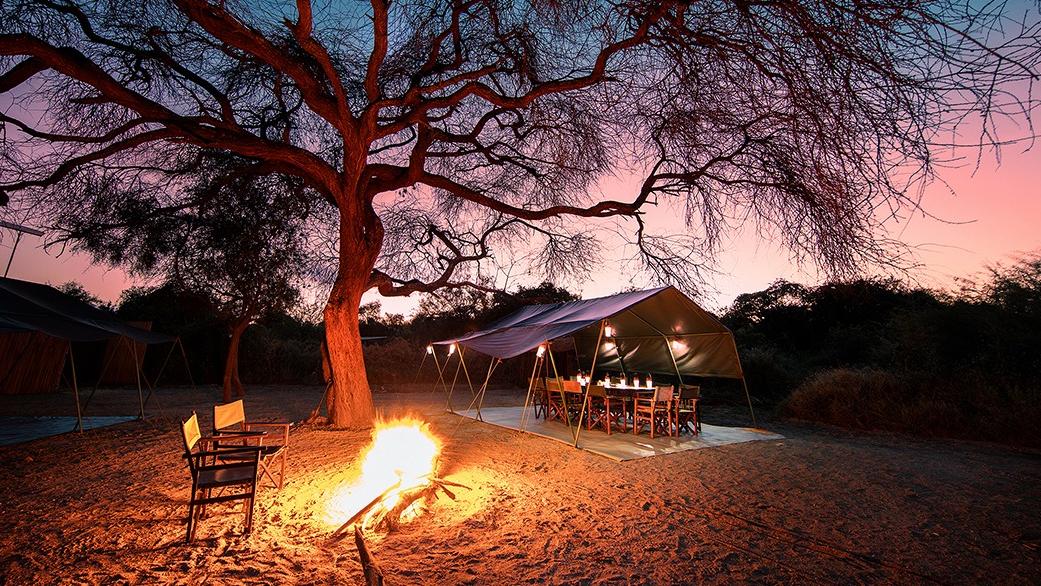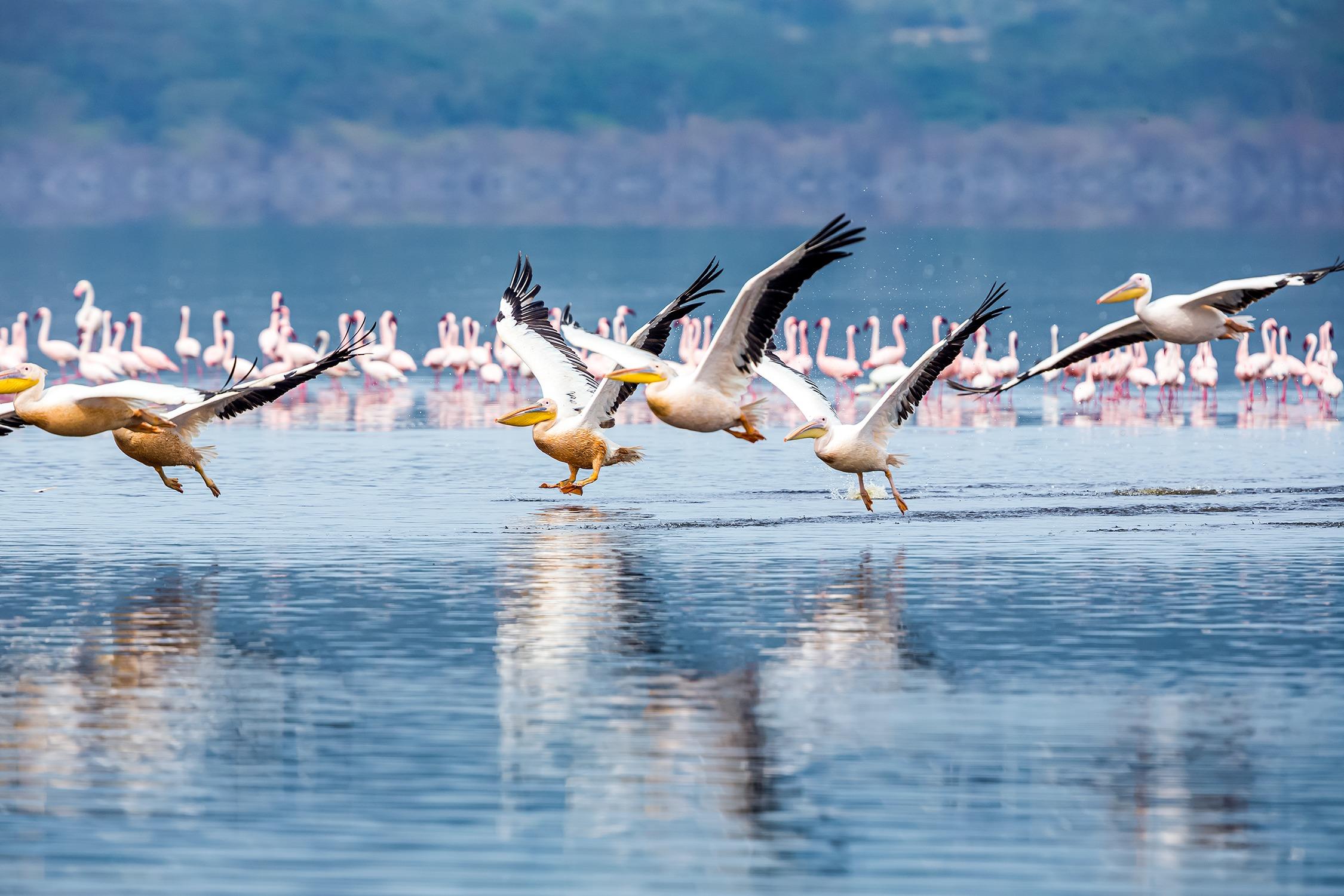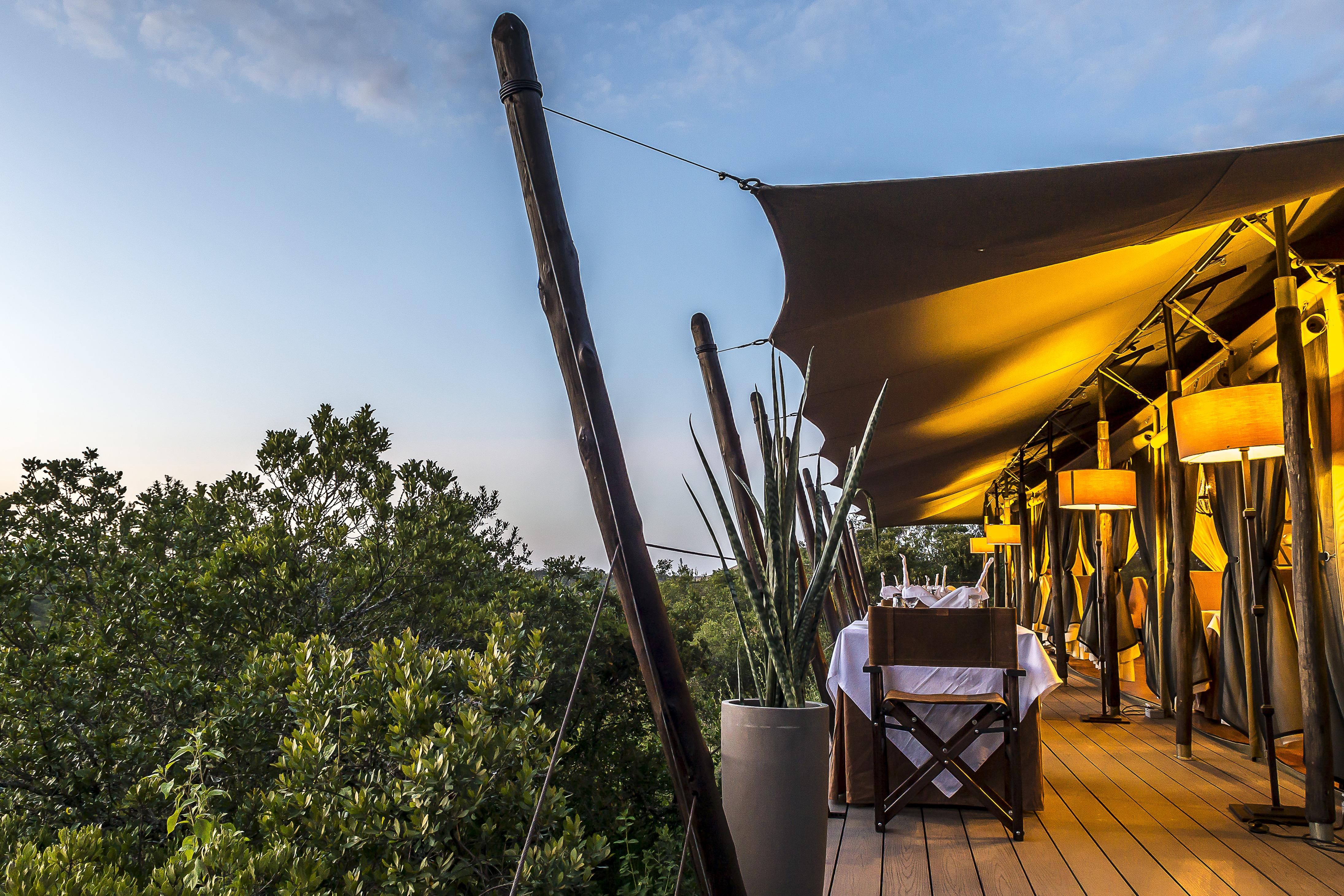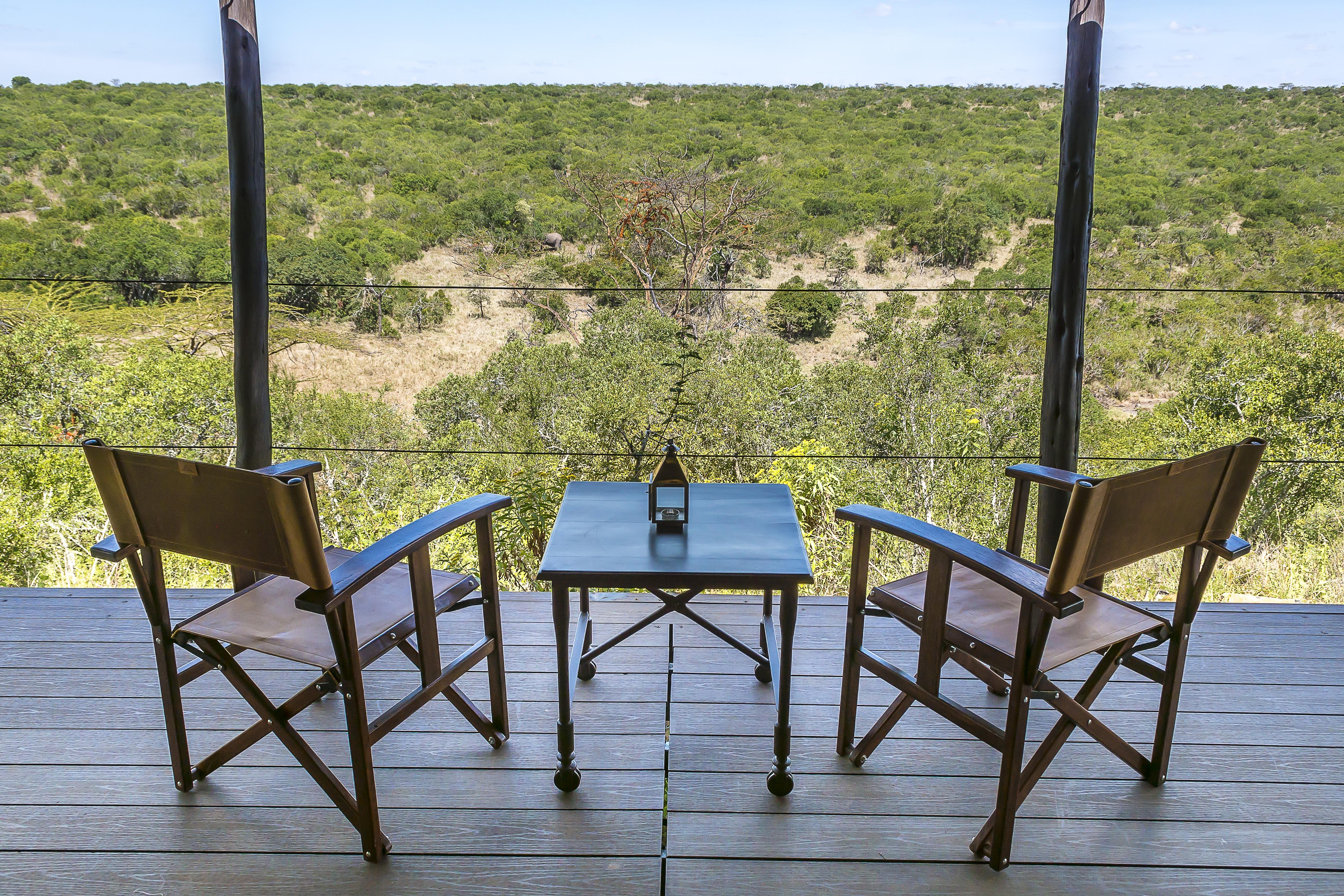 A bonfire burns at the Nairobi National Park camping grounds, where campers can gather as they tell campfire stories while watching the African sunset as darkness sets in. (PHOTO PROVIDED TO CHINA DAILY)
A bonfire burns at the Nairobi National Park camping grounds, where campers can gather as they tell campfire stories while watching the African sunset as darkness sets in. (PHOTO PROVIDED TO CHINA DAILY)
With a coastline stretching for 536 kilometers along the Indian Ocean, Kenya, which is rich in tourist attractions like the savannah, lake lands, the world-famous Great Rift Valley and mountain highlands, is one of the leading tour destinations in Africa.
As part of its staple offerings, the East African country is home to wildlife like lions, elephants and rhinos. Most tourists who visit Kenya seem to prefer safari visits in the numerous parks, like the Maasai Mara Reserve, known for its annual wildebeest migrations, and Amboseli National Park, which offers panoramic views of the 5,895-meter-high Mt. Kilimanjaro in neighboring Tanzania.
In recognition of its world-class safari destinations, Kenya, which is East Africa's largest economy, scooped the world's leading safari destination award at the World Travel Awards held in Oman last November.
Despite its fame for safari tour packages, in which tourists are picked up at the airport and whisked off to a game camp, where they join a line of safari trucks to catch a glimpse of the country's diverse flora and fauna, Kenya is also home to relatively unknown and hugely underutilized camping spots across the country.
For adventurous travelers, camping in Kenya offers the chance to escape the crowds and see some of the country's most beautiful sites from the rugged comfort of their own tent. Unlike safari tours, camping allows visitors to enjoy a night under the cover of countless stars and the feeling of morning dew on your feet as you wake up in the pristine wild breathing Africa's crisp, clean morning air.
Unlike spending your visit in five-star hotels, the beauty of camping is that visitors are in charge of their schedule, including sleeping, meal and even bath times, and visitors with tight time schedules will find that picnicking at Kenyan camps is an excellent option.
One of Kenya's famous camping sites is found about 230 kilometers north of the capital, Nairobi, in the Ngare Ndare Forest Reserve. What visitors will find unique about this camping site is the forest reserve's 7-meter-high tree platform on which they can set up their tents and camp.
 Great white pelicans take off in the wild and as flamingos in the background in Naivasha, Kenya. (PHOTO PROVIDED TO CHINA DAILY)
Great white pelicans take off in the wild and as flamingos in the background in Naivasha, Kenya. (PHOTO PROVIDED TO CHINA DAILY)
The tree platform leads to a tree canopy walk made of a suspended wire bridge going several hundred meters through the trees. Below the tree platform and the suspended bridge, campers can gather beside a fire pit dug out under a giant tree and tell campfire stories while watching the African sunset as darkness sets in. Campers will also revel in Ngare Ndare's famed blue rock pools that you can leap into from great heights.
ALSO READ: City walks rake in big money for beverage enterprises
Nights in the Ngare Ndare forest reserve in Kenya's Meru County can be very cold, and tourists planning to camp in the reserve are advised to pack warm clothing. However, a campfire is always provided to keep campers warm at night.
For an optimal camping experience, it is best to visit the camp during the dry season between June and October and from December to March. The roads leading to the remote campsite are more easily accessible during the dry season.
For tourists who enjoy group activities, the Rapids camp, located just an hour-and-a-half drive north of Nairobi is an ideal destination. Rapids Camp is the definitive rafting capital of East Africa and a great team-building site. Its proximity to Nairobi and the famed Thika Super highway makes it very easy to access. The camp lies close to the Sagana River and has a river frontage of about 450 meters and Kenya's largest waterfall in terms of volume in Kenya.
Aside from offering a magnificent camping site for visitors, the Rapids camp has a myriad of activities for tourists, especially those who travel in groups, to immerse themselves in. Some of the fun activities that can be enjoyed in the park include white-water rafting, kayaking, river trekking, bungee jumping, bird watching, sport fishing, rock climbing, star gazing, boating and waterfall challenges.
The camp also has one of the most amazing zip lines in Kenya, cutting across the Rapids Falls located within the site. The 250-meter zip line is 110 meters above the river, which makes it unique in Kenya. Visitors who pitch their tents at Rapids Camp are assured of spectacular stargazing activity at night offering tourists a glimpse of the universe through the beautiful, dark skies.
 One canvas tent at Kenya's Jambo Mutara Camp offers an expansive view of untouched wilderness, showcasing the hidden and vastly unexplored camping spots in Kenya. (PHOTO PROVIDED TO CHINA DAILY)
One canvas tent at Kenya's Jambo Mutara Camp offers an expansive view of untouched wilderness, showcasing the hidden and vastly unexplored camping spots in Kenya. (PHOTO PROVIDED TO CHINA DAILY)
Modern facilities
Visitors to the Rapids camp can hire tents at the site at an affordable fee, and the tents come with a sleeping bag. Being exclusively a campsite, the Rapids camp has no cottages or rooms. However, it offers modern and clean sanitary facilities and the camp has electricity and running water, and you can carry your food and do self-catering.
Camping lovers in Kenya can also visit the Crayfish camp, which offers travelers an adventure by Lake Naivasha. This freshwater, approximately 177-square-kilometer lake is home to many varieties of flora and fauna found within Kenya's Great Rift Valley.
The camp features well-maintained grounds with all major amenities within easy reach of each other. The Crayfish Camp, located 18 km from Naivasha town, also has lush grounds that can accommodate 400 campers, and visitors can bring their own tent or rent one at the camp.
The tents for hire at the camp have sitting areas, terraces and sun decks giving a stunning view over Naivasha landscapes and surrounding areas. The washrooms and outdoor cooking facilities are within the camping grounds.
Most of the recreational activities on offer around the Crayfish camp are outdoor activities favored by campers, including boat rides at Lake Naivasha, rock climbing, football, bike riding and bird watching.
Visitors camping at the site have access to a number of other activities they can engage in as part of the tourist activities on offer at Naivasha town. These include game viewing, where you can spot various types of animals drinking water at the lake, boat cruises at Lake Naivasha and hot-air ballooning. Visitors can also participate in nature walks in the park, flying safaris, cultural visits in the surrounding community or horseback riding in the park.
For visitors who love touring coastal areas, Kenya offers Mike's camp on Kiwayu island, in the Lamu Archipelago. This private facility, formerly known as Munira camp, has lots of caves and coves to explore on Kiwayu island and the campsite sits next to two villages, Kiwayu, which is an hour's walk south of the camp, and Chandani, a 20-minute walk to the north.
Visitors to the camp have access to an extensive mangrove creek system on the island, which is ideal for birdwatching and light tackle fishing. The camp also offers other activities like water sports and safaris, and it has a 10-kilometer, virgin beach where visitors have access to spectacular snorkeling over a myriad of unspoiled coral reefs. The camp has spacious, comfortable tents, locally referred to as bandas, built of makuti, or locally weaved palms, which makes them blend harmoniously into the coastal environment.
 A deck under the tent stands amid the wild, surrounded by the sights and sounds of the bush within the camping grounds in Kenya's Laikipia County. Campers are free to choose either public or private sites across the country. (PHOTO PROVIDED TO CHINA DAILY)
A deck under the tent stands amid the wild, surrounded by the sights and sounds of the bush within the camping grounds in Kenya's Laikipia County. Campers are free to choose either public or private sites across the country. (PHOTO PROVIDED TO CHINA DAILY)
Easy access
Despite being located in a very remote corner of the Kenyan coast, the camp is easily accessible to tourists, who can take one of the several flights a day from Nairobi to the nearest town, Lamu, from where a quick speedboat or relaxing dhow cruise will transport them to the island camp.
For visitors who want to enjoy Kenya's magnificent wildlife sightings without necessarily hoping for a safari tour, the Amboseli Bush Camp, located next to Kenya's Amboseli National Park, is an ideal camping site.
The camp sits on a 300-acre property overlooking busy animal waterholes with fantastic views that include huge herds of elephants and surrounding park areas. The Amboseli national park, next to the camping site, is big, covering, 3000 square kilometers in Kenya and across the border in Tanzania.
The Amboseli bush camp has classic and comfortable safari tents, which have verandas, sitting areas and terraces with a cozy atmosphere. From these tents, visitors can relax while taking in splendid views of animals visiting the many watering holes dotting the main park.
Other activities that campers at this site can immerse themselves in include game viewing, especially of herds of elephants, walking night safaris, hiking at Mount Kilimanjaro, or bird watching in the park and nature walks in the local village.
The camping site is easily accessible, just a 3-hour drive from Nairobi. With a scheduled flight from Nairobi, visitors can land at the Amboseli National Park airstrip, about a 40-minute drive from the camp. For a complete camping experience, guests are advised to bring their own food, the campsite has a spacious outdoor kitchen where campers can prepare their meals.
In as much as camping can be a fulfilling experience, visitors who travel to Kenya for camping activities should prepare in order to have a convenient and wholesome experience. Most camping activities require a tent, sleeping bag, and sleeping pad for comfortable camping. These items are available at most camping sites in Kenya, but it is important to confirm whether one needs to carry their own where the camping sites are remote.
Camping lovers should also bring appropriate clothing for the climate, including rain gear, warm layers, and comfortable shoes or boots. It is also advisable to have a headlamp or flashlight with extra batteries, as well as lanterns for lighting at night.
ALSO READ:Short-trip boom boosts car rental, camping business
For safety purposes, campers should bring a basic first aid kit with essentials like bandages, antiseptic, and pain relievers. A map and compass or GPS device are also essential for campers who prefer nature walks or unguided tours. Indoor games, books, or other forms of entertainment at the campsite will also be welcome equipment.
Since most camping sites are located deep in the bush, away from human settlements, it is vital to carry toiletries like toothbrushes, toothpaste and toilet paper. Sunscreen, hats and sunglasses are also advisable.
While visiting Kenya for camping activities, it is important to note that most camping sites in the country can be broadly categorized into two groups, public and special camping sites. Most public camping sites in Kenya are easily accessible and cost as little as $10 per tent. Camping inside Kenya's public national parks and reserves costs between $15 to $50 per person per night.
Public camping sites are shared with other campers, and one is likely to meet other tourists with similar interests. Most public campsites do not require advanced booking, and basic camping facilities are provided in most of the sites, including water, toilet and bathroom, as well as kitchens or open huts.
For special or private campsites, visitors are able to access facilities or spaces that are exclusive for use by the client alone. Most bookings for special campsites are made in advance, and visitors who want to access special campsites in Kenya's national parks can make their bookings through the Kenya Wildlife Service. Some of the special or private campsites may offer limited camping facilities, and visitors are advised to confirm with their hosts what essential materials they need to bring along.
While camping is a more adventurous yet less costly alternative to traditional safari tours, it is prudent to keep in mind that it has its challenges. Camping can be intimidating, especially if you have never done it before, and even the simple task of setting up a tent for the first time could have you sweating. It also requires more work than just showing up at a lodge and being driven around and fed, and prospective travelers should know that it takes preparation and planning.


